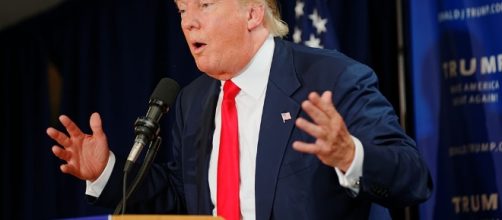On Friday, U.S. President Donald Trump threatened Venezuela with Military Intervention, escalating U.S. response to the crisis currently going on in the country, a move Caracas described as “craziness.”
Venezuela is currently witnessing volatile unrest, with the looting of arms and ammunitions from a military base by anti-government forces following the usurping of legislative powers from the opposition-dominated Congress by a new lawmaking body.
Unrest in Venezuela
Trump told reporters that the people of Venezuela are suffering and dying and that there are several options on the table for Venezuela which include possible military intervention if necessary.
The authorities in Caracas were shocked by the U.S. President’s comments, with Venezuela’s Minister of Defense Vladimir Padrino describing the threat of military intervention “an act of craziness.”
A statement from the White House said on Friday, Venezuelan President Nicolas Maduro requested a telephone conversation with President Trump but the White House turned it down and stated that Trump would only speak to the Venezuela’s President when democracy was fully restored in the country.
Venezuelan officials had earlier accused the U.S. of planning an invasion. A former military general told reporters earlier in 2017 that anti-aircraft missiles were sighted along the coast of the country.
The Pentagon denied the allegation and said the United States military was willing to supports moves to protect American citizens and U.S.
interests in the country but described the insinuations by officials in Caracas of planned invasion as unfounded and baseless.
A week of threats of war
Trump’s statement on possible military intervention came after he had repeatedly threatened North Korea if it threatens the U.S., its territories or its allies.
Trump declined to give more details about the possibility of U.S.
forces leading an operation in Venezuela.
Ben Sasse, a senator from Nebraska and a member of the Senate Armed Service Committee, criticized the new position of the President on the Venezuelan crisis.
Since the 1994-1995 operation that aimed to evict a military regime in Haiti installed after a 1991 coup, the U.S. military has not directly carried out any operation in the region.
Maduro and other top Venezuelan officials were sanctioned by the Trump administration in July after Maduro installed a constituent assembly composed of the loyalists of his Socialist Party, and cracked down on and arrested many opposition figures, a move that drew condemnation from world leaders.


